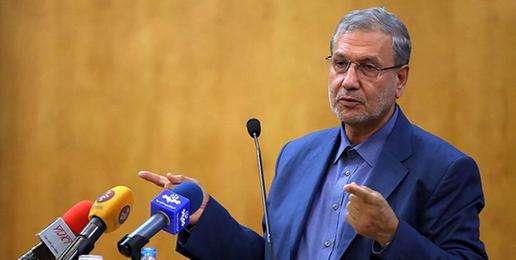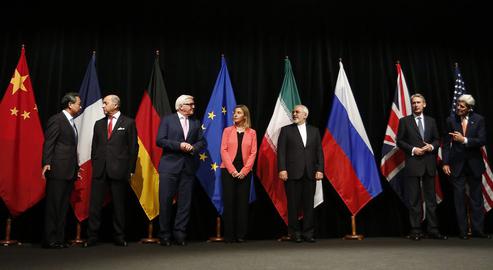In the early hours of the morning of January 8, 2020, the Islamic Republic of Iran shot down a Ukrainian Boeing 737 passenger plane by firing two missiles, killing all 176 passengers and crew on board. Since then, the Islamic Republic has violated international law and made repeated mistakes in public at least 19 times. Some of these actions carry criminal penalties, and there is international liability attached to others. Below is a list of these international violations committed by the Islamic Republic regarding the shooting down of Ukraine International Airlines Flight PS752.
***
1. The first major offense occurred when the Islamic Republic failed to block the country's airspace for passenger aircraft after Iran fired rockets at a vacant section of a US-led coalition air base in Iraq. This directly endangered the lives of civilians.
2. Another fatal mistake occurred when, according to the commander of the Revolutionary Guards Aerospace Force, there was insufficient communication between the Guards’ temporary air defense system, which was located near Tehran's Imam Khomeini International Airport, and the Islamic Republic's integrated defense system. The relevant operator had not received a response from his superior when he queried whether or not he should fire the first missile.
3. Despite knowing that the Ukrainian passenger plane had been targeted, from the first minutes that followed the disaster, government officials, and in particular managers from the Islamic Republic’s aviation sector, spread false information and news about the incident, including stating that the plane had technical defects.
4. A day after the plane was shot down, Amir Ali Hajizadeh, the commander of the Revolutionary Guards Aerospace Force, whose personnel fired at the plane under his command and who was aware of the fact that the plane had been targeted by a missile, spoke at a press conference, where he made claims about the successful attack on the Ain al-Assad base in Iraq. He did not mention the catastrophe, and said nothing in response to Ukraine’s demands for clarification regarding the cause of the crash. Hajizadeh said: "We did not seek to kill anyone in this operation [the attack on Ain al-Assad base]. However, dozens of people must have been killed or injured. We could have designed the operation to have 500 killed in the first phase, and if they had responded, their casualties would have been between 4,000 and 5,000 in the second and third phases. All the missiles hit the target and not a single bullet was fired at our missiles. The Americans were on full alert and were anxiously patrolling with 12 reconnaissance aircraft."
5. While the government had a commitment to preserving the scene of the crash in the event of an international air accident until the representatives of the country owning the aircraft and representatives of its manufacturer arrived, it quickly cleared the scene of the disaster with mechanical shovels. Images of the wreckage of the downed plane being cleared appeared on social media platforms, provoking a public reaction.
6. In the first three days, Iranian officials ruled out the possibility of any external object causing the plane crash as Ukrainian and Canadian officials indicated could be the case given the ambiguities surrounding the tragedy just after it happened. A large number of passengers were nationals of the two countries. For example, on January 9, 2020, government spokesperson Ali Rabiei called the theory put forward by United States media that there had been a missile strike on the plane a lie and a brand of psychological warfare, Rabiei said: "It is unfortunate that the US government's psychological operations and its conscious and unconscious accomplices are pouring salt on the wounds of bereaved families with these lies; they are also sacrificing the families of the victims to achieve their goals in this psychological operation."
7- On the morning of the fourth day after the downing of the plane and after about 80 hours of denial, the General Staff of the Armed Forces of the Islamic Republic of Iran took responsibility and admitted it had fired missiles at the aircraft. But it announced: "[The downed plane], when trying to return, was approaching a sensitive Guards military base and was at an altitude and in the shape of a hostile target."
Examination of the route taken by the aircraft from the very short distance from the runway until the moment of the crash showed that the pilot had been flying inside the international flight corridor without any traces of deviation. The statement issued by the General Staff of the Armed Forces that the pilot had tried to return was another false claim made in order to hide the truth, and constitutes another violation.
8- Following the statement of the General Staff of the Armed Forces, Amir Ali Hajizadeh, Commander of the Revolutionary Guards Aerospace Force, took responsibility for the downing of the plane by the forces under his command, but falsely stated that the United States may have disrupted the defense system and that this sabotage could have resulted in the system firing at the plane accidentally. A few weeks later, Islamic Republic officials denied there had been any disruption to the defense systems.
9. Iranian authorities announced that it would not send the two "black boxes" of the downed plane abroad so that information on them could be retrieved. If a country does not have the ability to read information contained in the black boxes, it is an offence not to send it to a country that has the ability.
10. Mohammad Javad Zarif, the Minister of Foreign Affairs of the Islamic Republic of Iran, announced that Iran did not have the technical ability to read the black box information, but that it would not send the boxes abroad. Despite international pressure, Iran delayed the delivery of the black boxes to France, which had the technical facilities to recover the information, for seven months.
11. The Islamic Republic refused to announce that it had shot down a passenger plane using two defense missiles belonging to the Islamic Revolutionary Guard Corps. This became clear after the information retrieved from the plane's black boxes was made public. Iran continued to try to conceal and falsify the information, refusing to admit that two missiles were shot at the plane, thus committing another violation.
12. Government officials stated that the damage to the downed plane should be paid by the plane’s insurers and Iran could not offer compensation. This failure to accept responsibility for the downing of the plane constituted another violation. After sustained protests from Ukraine, Iran changed its mind and agreed to pay compensation.
13. The Iranian government announced that it would pay the blood money [a stipulation under Sharia law] of the passengers of the downed plane based on their nationality. Because the Islamic Republic does not recognize dual nationals, the blood money of Iranian citizens with dual citizenship was less than the blood money of non-Iranians. Following public protests, the Islamic Republic announced that it would pay the same amount of blood money to all the victims of the downed plane.
14. While the General Staff of the Armed Forces of the Islamic Republic had announced in January 2020 that, in accordance with its duties, it would immediately report the person, people, or institutions responsible for the shooting to the Judiciary of the Armed Forces in an effort to compensate for any mistakes, the process regarding the possible prosecution of individuals has remained completely secret. The wanted persons are unknown. In addition, the people responsible for the catastrophe, as well as the military commanders who refused to close the country's air space when there was a risk of deadly attacks, were not only not prosecuted, they were not even removed from office.
15. Mohsen Baharvand, Zarif's deputy at the Ministry of Foreign Affairs, announced 10 months after the plane crash that a technical report on the crash would be given to Ukraine no later than one month later. Despite this announcement, the Islamic Republic delayed the submission of the report until the anniversary of the targeting of the passenger plane.
16. Iranian authorities have run a campaign of harassment against a group of the victims' families who have united to bring about justice for their loved ones. Authorities have demanded the group put an end to the protests over the case. Family members of those killed in the plane crash have been summoned, detained and even threatened with rape in detention by the Islamic Republic's security services.
17. The government seeks to settle and close the case by declaring payment owed in compensation without consulting or involving Ukraine, Canada, Afghanistan, Sweden, and the United Kingdom, whose nationals were killed in the air disaster. The Legal Vice President of Iran announced on Wednesday, December 30 that the government's intention to pay compensation to the families of the Ukrainian plane crash victims had been approved at that day’s meeting of the Council of Ministers. In the proposal, the Ministry of Roads and Urban Development is obliged to make arrangements for the payment of $150,000 or its equivalent in euros to each of the families of the victims.
As the anniversary of the tragedy approached, Iran attempted to close the case without clarifying all the factors that led to the disaster or enforcing criminal justice against those responsible — constituting two further violations.
18. The claim of "unintentional error” in the tragedy has not been proven, not in the published information and reports available, and certainly a review of Iran’s attempts to deny and falsify the facts does not uphold this claim. The hypothesis that Iran attempted to create a "human shield" against a possible US attack remains. The use of civilians to avert a military strike constitutes a war crime. Although conclusive evidence to prove this is not publicly available in this case, the Revolutionary Guards commander’s statement that closing the country's air space could have exposed the missile strike operation against US targets in Iraq strengthens the suspicion that the Islamic Republic used passengers on Flight PS752 as a human shield.
19. A year on, part of the truth has been clarified, and yet the Islamic Revolutionary Guard Corps continue to ignore the confirmed facts about this tragedy. And it continues its violations, including by identifying "American adventurism" as the cause of the crash.
Related coverage:
Families of PS752 Victims Lay Flowers "Where our Children Took Their Last Steps"
Eight Lies the Regime Told Us About the Shooting Down of PS752
Of Sorrow and Anger: The Families of Ukrainian Flight Victims Speak Out
visit the accountability section
In this section of Iran Wire, you can contact the officials and launch your campaign for various problems




























comments